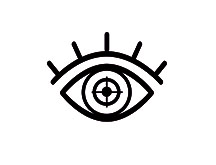
Lens-based refractive surgery involves the use of intraocular lenses (IOLs) to correct refractive errors and improve vision. Unlike corneal refractive surgery, which reshapes the cornea, lens-based procedures focus on replacing the eye's natural lens with an artificial lens to achieve the desired refractive correction. Here are some key points about lens-based refractive surgery:
Types of Lens-Based Refractive Surgery:
- Cataract Surgery with IOL Implantation: Cataract surgery is a common lens-based procedure where the cloudy natural lens is removed and replaced with an artificial intraocular lens (IOL).
- Refractive Lens Exchange (RLE): Similar to cataract surgery, RLE is performed in individuals without significant cataracts but who want to reduce or eliminate the need for glasses or contact lenses.
Intraocular Lenses (IOLs):
- IOLs come in various types, including monofocal, multifocal, and toric lenses.
- Monofocal lenses provide clear vision at a single distance (usually distance vision), and patients may still require reading glasses.
- Multifocal lenses aim to provide clear vision at multiple distances, reducing the need for reading glasses.
- Toric lenses correct astigmatism in addition to nearsightedness or farsightedness.
Patient Evaluation:
- Similar to corneal refractive surgery, individuals undergo a comprehensive eye examination to determine their suitability for lens-based refractive procedures.
- Factors such as the health of the eye, refractive error, and the patient's visual goals are considered.
Surgical Procedure:
- Cataract surgery involves making a small incision in the eye to remove the cloudy lens, and an IOL is inserted to replace it.
- In RLE, the clear natural lens is removed, and an IOL is implanted for refractive correction.
Recovery:
- Recovery time after lens-based refractive surgery is typically shorter than that of some corneal refractive procedures.
- Patients may experience temporary side effects, such as mild discomfort, but vision improvement is often rapid.
Effectiveness:
- Lens-based refractive surgery is highly effective in reducing or eliminating the need for glasses or contact lenses.
- The choice of IOL type influences the range of vision correction achieved.
Risks and Complications:
- As with any surgery, there are potential risks and complications associated with lens-based refractive procedures.
- Postoperative care is crucial to monitor for any issues and ensure optimal healing.
Presbyopia Correction:
- Multifocal IOLs are designed to address presbyopia, allowing individuals to see clearly at different distances without the need for reading glasses.
Lens-based refractive surgery is a versatile option for individuals seeking vision correction, especially those with age-related changes like cataracts or presbyopia. If you're interested in this topic, are you considering any specific type of lens-based refractive surgery, or is it more of a general curiosity?